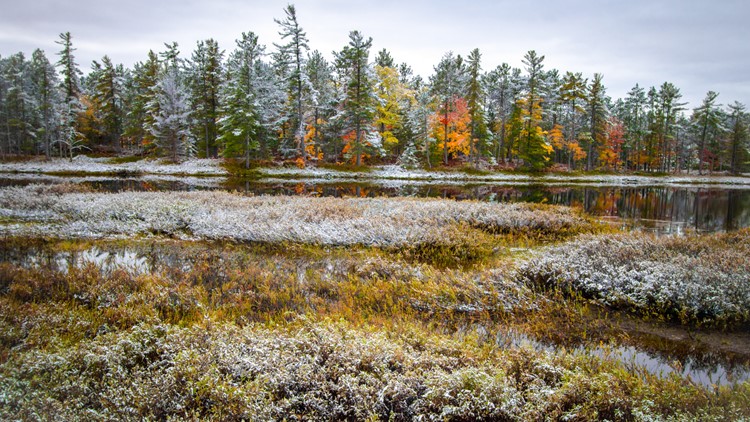A significantly revised bill aimed at easing development of certain Michigan wetlands passed the Legislature early Friday morning in what was expected to be the final hours of an action-packed lame-duck session.
The revised version of Senate Bill 1211, which passed the House in a 61-46 vote and the Senate in a 25-12 vote, would protect far more wetlands than were protected under earlier versions of the bill, sponsored by Sen. Tom Casperson, R-Escanaba.
It was sent back to Gov. Rick Snyder for his signature.
The revised bill would protect wetlands larger than five acres, even if they were not connected to another body of water. It would also protect wetlands, regardless of their size, if they were considered rare or imperiled, or if they were home to threatened or endangered species of birds or other animals.
While you were sleeping:
House Republican spokesman Gideon D'Assandro said the Thursday revisions had shifted the Department of Environmental Quality from neutral to supporting the bill, and caused several environmental groups, including the Michigan Environmental Council and the Michigan United Conservation Clubs, to shift from opposed to neutral.
The earlier version of the bill which critics said put 600,000 acres of wetlands and 4,500 inland lakes at risk, passed the Senate Dec. 4 in a 23-14 vote.
An updated figure on how many additional acres of wetlands would be open to development under the revised bill was not available early Friday, but D'Assandro said the number would be considerably smaller.
Snyder has not said if he will sign the bill.
As initially proposed, the bill would have provided protection for only wetlands that are larger than 10 acres, compared to five acres currently.
The acreage change was removed when the bill passed the House, buy environmental activists said Tuesday that other changes to how "wetlands" were defined in an earlier version of the bill would create confusion and put large areas of wetlands, bogs, and inland lakes at risk.
"This is doing surgery on a toe with a chainsaw," Michigan Environmental Council agriculture policy director Tom Zimnicki told the House Committee on Competitiveness Tuesday.
Casperson said the legislation is needed to stop and prevent overreach by the Michigan departments of Natural Resources and Environmental Quality. He accused the departments of radical enforcement actions against property owners.
He cited a recent example of a Menominee homeowner who he said was denied permission to widen his driveway the width of one to two vehicles to give himself room to turn around.
Casperson said he's been called radical for weakening wetlands protections, but "the radicalism is on one side and it's on the department side." Current policies are "taking away people's property rights to the nth degree," Casperson said.
Lansing environmental attorney Michael Pattwell, testifying with Casperson in support of the bill, said the bill sets as a floor for state regulation any "Waters of the United States" and makes sure that landowners accused of violations of the Natural Resources and Environmental Protection Act receive adequate notice of the details of the alleged violation and have a chance to respond. Under the bill, property owners would be able to recover some of the costs of defending themselves if they prevail against the state agency, Pattwell said.
Matt Smego of the Michigan Farm Bureau said his group supports the legislation, because it will provide greater clarity about state and federal jurisdiction with respect to wetlands.
Contact Paul Egan: 517-372-8660 or pegan@freepress.com. Follow him on Twitter @paulegan4.



